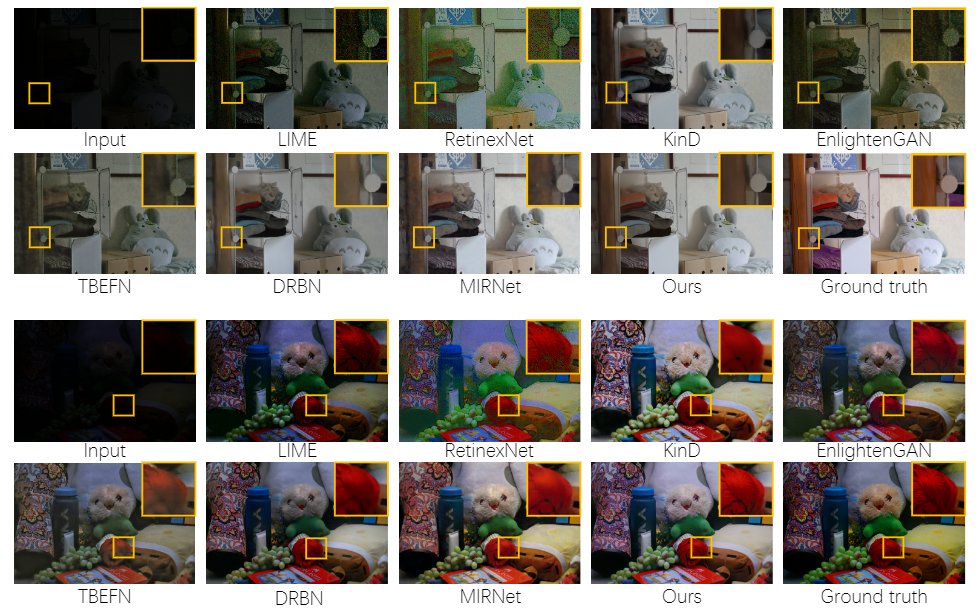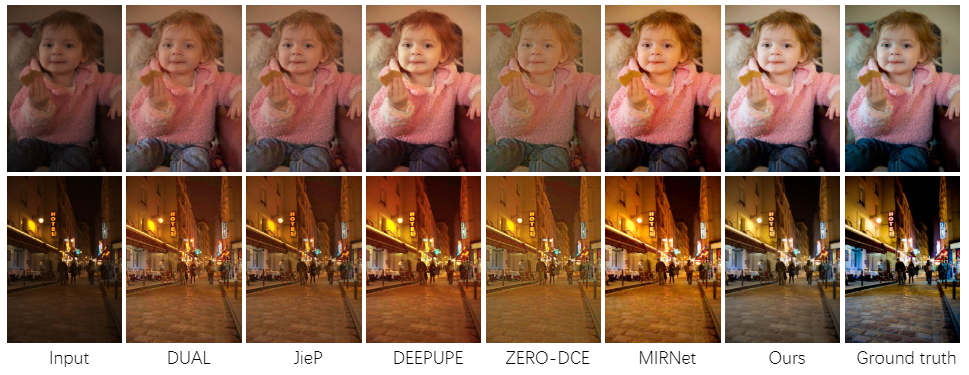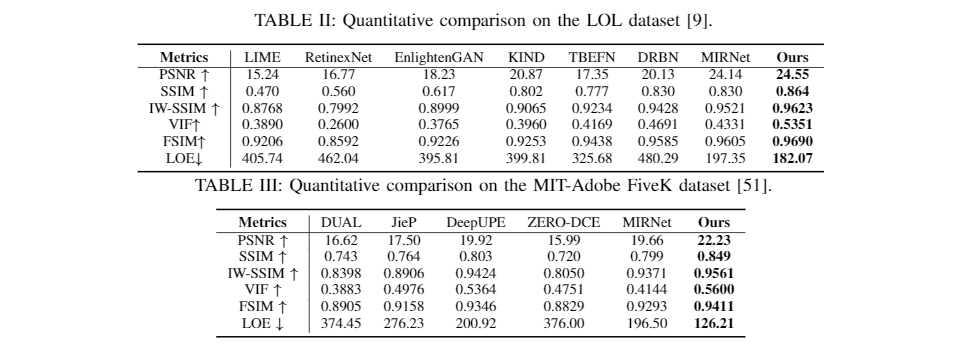SMNet: Synchronous Multi-scale Low Light EnhancementNetwork with Local and Global Concern.
by SHIDENG LIN, FAN TANG, WEIMING DONG, XINGJIA PAN and CHANGSHENG XU.
The SMNet has good performance to enhance low-light images.
Limited by objectively poor lighting conditions and hardware devices, low-light images with low visual quality and low visibility are inevitable in the real world. Accurate local details and reasonable global information play their important and distinct roles for low-light image enhancement: local details contribute to fine textures while global information is critical for proper understanding of global brightness level. In this paper, we focus on integrating both local and global aspects to achieve high-quality low-light image enhancement by proposing the synchronous multi-scale low light enhancement network (SMNet). A synchronous multi-scale representation learning structure and a global feature recalibration module are adopted in SMNet. Different from traditional multi-scale feature learning architecture, SMNet carries out the multi-scale representation learning in a synchronous way: we first calculate the rough contextual representations in a top-down manner and then learn multi-scale representations in a bottom-up way to generate representations with rich local details. To acquire global brightness information, a global feature recalibration module (GFRM) is applied after the synchronous multi-scale representations to perceive and exploit proper global information by global pooling and projection to recalibrate channel weights globally. The synchronous multi-scale representation and GFRM compose the basic local-and-global (L&G) block. By stacking several L&G blocks, the proposed SMNet could enhance the input low light images by applying local representation and global recalibration. With above considerable structures, our model generates high quality outputs. Experimental results on mainstream real-world dataset LOL and synthetic dataset MIT-Adobe FiveK show that the proposed SMNet not only leads the way on objective metrics but also is superior in subjective comparisons compared with typical SoTA methods. The implement code had already been uploaded to: https://github.com/linshideng/SMNet.
SMNet is built by:
- python 3.7.3
- pytorch 1.1.0
- scikit-image 0.14.5
- scipy 1.1.0
- opencv-python 4.1.1.26
- pillow 5.2.0
Tips:
- The h/w resolution of all input images shall be divided by 4, such as 600*400.
- We provide a few test images in
./dataset.
To test the pre-trained model on LOL dataset, just run:
bash test.sh
or run:
python test.py --test_folder path_to_images --output save_images_here --modelfile pretrained_model --modeltype lol
Example:
python test.py --test_folder ./datasets/LOL/test/low --output ./output_test --modelfile ./model_LOL.pth --modeltype LOL
- You can change the
--test_folderto test your own dataset. - You can use the pretrained model training on Adobe-MIT FiveK dataset by
--modelfile ./model_FIVEK.pth --modeltype FIVEK
Before training on your own dataset, you should place images like
- your_dataset
- train
- high
- low
- test
- high
- low
- train
moreover, you should use the vgg16.pth for perceptual loss. The file has been uploaded to Baidu Netdisk(code: hzfs) and Goole Drive. And please change the absolute path in line 56 of lib/utils.py.
train low/high includes low-light images and their ground truth for training, while test low/high includes low-light images and their ground truth for testing.
To train the model, just run:
bash train.sh
or run:
python train.py --trainset path_to_trainset --testset path_to_testset --output save_inter_images
Example:
python train.py --trainset ./datasets/LOL/train --testset ./datasets/LOL/test --output ./output



